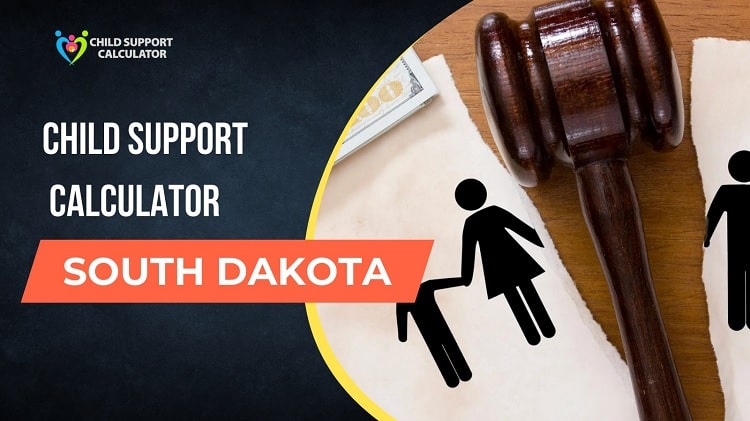Child Support Calculator In Manitoba
Following a separation or divorce, child support is a crucial component of supporting the wellbeing of the kids. The Child Support Calculator is essential for creating just and equitable financial arrangements for children in the Canadian province of Manitoba. Parents and legal experts can use this tool as a guide to assist them in deciding how much financial support is necessary to ensure that a child’s basic needs are met.

The Child Support Calculator in Manitoba considers various variables, including the number of children involved, the number of parents, and the custody arrangement. The major objective is to make sure that children have access to the resources they need for growth and receive the financial support they need to maintain their standard of living.
This tool assists in making support agreements transparent and consistent, minimizing problems and uncertainties that may occur after a separation or divorce. It encourages parents to prioritize their kids’ needs by highlighting the significance of their financial stability and security.
In this article, we will delve deeper into the Child Support Calculator in Manitoba, providing insights into how it works, the factors it considers, and its significance in safeguarding the future of children during challenging family transitions. Understanding this tool is essential for both parents and legal professionals, as it aids in making informed decisions that prioritize the well-being of the most vulnerable members of our society – our children.
How Much is Child Support In Manitoba?
In Manitoba, the number of children involved and the paying parent’s income are the main variables used to calculate child support amounts. In order to ensure that children get adequate financial assistance regardless of their parent’s marital status, Manitoba abides by federal child support rules that offer a framework for determining these amounts.
The rules consider the paying parent’s gross income, which includes money from various sources like investments, pensions, and employment income. The recommendations determine a percentage of the paying parent’s income, varied according to the number of children in the family, that should be set aside for support. The guideline %, for instance, is often smaller when there is only one child than when there are several.
The child support formula may be changed to account for the effect of shared custody, where both parents have roughly equal parenting time, on the kid’s spending.
While the federal regulations offer a standardized approach, it’s crucial to keep in mind that some conditions and certain components may cause the computations to deviate from the norm. If they are in the child’s best interests, a court might consider these variances.
Child Support Guidelines In Manitoba
When parents separate or divorce, Manitoba’s child support standards offer a well-organized framework for calculating financial obligations to children. No matter how their parents are related, these rules are designed to guarantee that children’s basic requirements are addressed and that they continue to enjoy a livable quality of life.
In Manitoba, the number of children involved and the paying parent’s income are the main factors in determining how much support is due. In order to ensure consistency across Canada, the province bases these estimates on the Federal Child Support Guidelines. These regulations consider the paying parent’s gross income and offer a simple formula to determine the right amount of child support payments.
The time each parent spends with the children is taken into consideration under Manitoba’s rules when parents share custody. Child support amounts may change as a result of this “shared custody” arrangement to more closely represent the shared financial responsibilities.
The child support standards aim to make support agreements fair and predictable, preventing possible problems and guaranteeing that children’s financial needs are prioritised during times of family change. The Child Support Calculator in Manitoba is a popular tool courts and parents use to calculate precise amounts based on unique situations.
In order to protect the financial security of children in Manitoba after a separation or divorce, parents and legal professionals must both understand these regulations.
How is Child Support Calculated In Manitoba?
In order to ensure that kids get the financial support they need after a divorce or separation, child support calculations in Manitoba, like in the majority of Canadian provinces, are based on a standard formula that takes a variety of criteria into account. The Federal Child Support Guidelines, which offer a standard framework for calculating child support payments, are the primary regulations for these calculations.
Here is an explanation of Manitoba’s child support formula in detail:
Establishing the Payor’s Income
Finding out the payor’s parent’s income, commonly referred to as the payor, is the first stage in the calculation of child support. All sources of income, including those from jobs, self-employment, rentals, investments, and other sources, are included in this income. This estimate is often based on the payor’s yearly gross income in Manitoba.
Withholdings from the Payor’s Income
Deductions from the payor’s income are permitted for things like income tax, Employment Insurance (EI) premiums, and Canada Pension Plan (CPP) payments. These deductions are uniform and based on state and local tax regulations.
Calculating the Recipient’s Income
The receiver parent’s income, often known as the custodial parent or the child support recipient, is also taken into account. The proper table amount of child support, which is the minimum amount outlined under the Federal Child Support Guidelines based on the payor’s income and the number of children, is often determined using the recipient’s income.
Calculating the Table Amount
The next stage is to establish the correct amount of child support after the payor’s income has been determined and the proper deductions have been made. Based on the payor’s income and the number of children, the Federal Child Support Tables offer standardized tables that display the basic monthly child support payments. To reflect changes in the cost of living, these tables are updated on a regular basis.
Shared custody arrangements include
The equation can be changed in situations where parents share custody of the kids, which means they have them for most of the time. This adjustment may result in a lower child support payment than the table amount since it takes into consideration the number of overnights each parent spends with the kids. A parent has the children for at least 40% of the time when there is a shared custody arrangement.
Extraordinary and Special Expenses
In addition to basic child support, additional and extraordinary costs are taken into account while calculating child support. Childcare, uninsured medical and dental costs, educational costs, and extracurricular activities are a few examples of these costs. According to their different earnings, the parents typically divide the cost of these fees.
Choosing the Final Child Support Amount
The ultimate child support amount is decided after taking into account all pertinent facts, such as the payor’s income, deductions, the recipient’s income, shared custody arrangements, and special expenses. The monthly child support obligation that the paying parent is liable for is represented by this sum.
Deviation from Recommendations
Although the Federal Child Support Guidelines offer a consistent structure for calculating child support, there may be circumstances where deviating from the recommendations is justified. This can happen if the parents already have a court order or agreement that specifies a different arrangement or if unusual circumstances warrant a deviation. When evaluating whether to stray from the rules, Manitoban courts may consider the child’s age, needs, and each parent’s financial situation.
Monitoring and Enforcement
After a court judgement or agreement has been reached, and child support has been set, it is crucial to make payments on time. support orders in Manitoba can be enforced in a number of ways, such as through the employment of federal and provincial enforcement programmes, income withholding orders, and licence suspensions. These methods aid in ensuring that kids get the financial assistance they require.
Resolving Conflicts
Parents who cannot agree on child support arrangements or amounts may need to seek legal counsel to help them settle their differences. Outside of court, agreements are frequently reached through negotiation and mediation. If an agreement cannot be reached, the case may be brought before a family court judge, who will decide based on the pertinent facts and the child’s best interests.
The major objective is to make sure that kids have access to the materials they need for growth and development, as well as the financial support they require to maintain their standard of living. Although the procedure may appear complicated, it is intended to ensure consistency and justice in child support agreements and, in the end, to put the children’s best interests first.
Parents and legal professionals should be aware of these rules and obtain legal counsel as needed to ensure that child support obligations are fairly computed and upheld.
What are special or extraordinary expenses?
In the context of calculating child support in Manitoba, special or unusual expenses are additional charges that may be added to the basic table amount of support to satisfy certain needs and requirements of the child. These costs are taken into account when they are deemed essential for the development and well-being of the child.
The categories of special or extraordinary expenses and the standards used to evaluate whether they may be included in child support payments are described as follows:
Child Care Expenses: The primary carer may claim child care costs incurred as a result of job, school, training, illness, or disability. These costs are taken into account if they are required for the child’s upkeep and welfare.
Health-Related Expenses: Charges for prescription drugs, dental work, or eyeglasses that exceed $100 annually and are not reimbursed by insurance may be included. The child will thus have access to essential medical and dental care.
Educational Expenses: Unusual costs for elementary or secondary school or other educational programs the kid needs may be taken into account. These costs guarantee that the child’s educational requirements are covered.
Post-Secondary Education Expenses: If the child enrols in post-secondary education, such as college or university, the corresponding expenditures might be taken into account.
Extracurricular Activity Expenses: Additional costs for activities that aid in a child’s growth and welfare may also be considered.
Several variables are taken into account when deciding whether these extra costs should be added to child support payments:
- Necessity: Is the expenditure essential for the development and well-being of the child?
- Reasonability: Is the expense acceptable in light of the parents’ individual earnings and the family’s spending habits prior to the divorce?
The financial help that the parent with the majority of parenting time receives for the expense (such as tax deductions for child care expenses) and the incomes of both parents are taken into account when calculating the additional amounts for special or extraordinary expenses.
These extra costs are often distributed proportionally based on the parents’ individual annual salaries over a predetermined threshold.
If the expense is $75 per month and one parent makes twice as much as the other, the parent with the greater income may be liable for an additional $50 in child support. The parent with the greater income may contribute more, possibly covering the entire $75 expense, if the spouse with the majority of the parenting time has little or no income.
When a specific expense’s precise amount isn’t known, approximations can be employed to perform the required calculations.
With this strategy, the child’s needs and well-being are prioritized, while the financial burden for these unique or extraordinary expenses is fairly split between the parents based on their individual financial capacities.
How is income determined?
In order to create fair and equitable support payments, it is essential to determine income for child support computations in Manitoba. Here is a breakdown of how income is calculated:
Income Sources: The basis for calculating support payments is the paying parent’s annual total income before taxes. All sources of income that need to be disclosed on a tax return are included in this income.
Some of these sources include employment income, pensions, earnings from enterprises or professions, commissions, rental income, earnings from farming or fishing, workers’ compensation, and benefits from social assistance.
Gross Compensation for Employment Income: When a parent’s income comes purely from employment, their gross pay is taken into account. Before taxes and other deductions are made, an employee’s gross pay is what they are given. However, the standards contain provisions that permit the addition to or subtraction from the gross salary of some things, such as union and professional dues.
Estimation of Income for the Current Year: The Child Support Service calculates an individual’s projected income for the current year based on their past three years of earnings, current income, and additional sources of income. This estimation aids in ensuring that child support computations take into account the most precise and recent income data.
Imputation of Income: The standards do permit imputing income, or adding a certain amount to a person’s income, in particular situations. This is done when a person’s income stated on a tax return does not fairly reflect their capacity to pay child support.
The calculation of child support is fair and considers a parent’s ability to provide for their child, thanks to the imputation of income. It avoids scenarios where a parent would use income manipulation to reduce their child support responsibilities, ensuring that kids get the money they need for their well-being.
Child Support Modification In Manitoba
Manitoba’s child support laws aim to protect children’s financial security after a divorce or separation. But life circumstances can alter, necessitating child support revisions. In order for child support agreements to remain fair and equitable as circumstances change, Manitoba’s family law acknowledges this possibility.
Child support modifications in Manitoba often occur when one parent’s financial situation significantly changes. This could involve adjustments to finances, employment circumstances, or living situations. Parents may request a child support modification order from the court when such developments take place.
To request a modification, a parent must provide evidence of a significant change in circumstances that warrants the change. The court will next evaluate the scenario, taking into account things like the child’s best interests and the financial circumstances of each parent. The objective is to ensure that the child’s needs are still being met appropriately in light of the new circumstances.
Child support changes are crucial to keep support arrangements fair and accurate over time. They give parents a legal way to manage shifting financial circumstances while putting their kids’ welfare first. Manitoba’s family law system attempts to guarantee that support remains commensurate with both parents’ changing needs and capacities by allowing for adjustments as necessary, thereby benefiting the children involved.
Conclusion
In the end, the precise amount of support in Manitoba can differ from case to case, but the guidelines offer a systematic framework for figuring out fair and acceptable support levels in order to promote the well-being and financial security of children. Parents can use internet calculators or speak with legal counsel to calculate the precise amount of child support due in their situation.
Faqs
How long does Manitoban child support last?
If the child is still dependent due to a sickness or handicap, or if the youngster is still in school or completing his or her education at a university or other post-secondary institution on a full-time basis, support may frequently be necessary past the age of 18.
What does Manitoban child support mean?
When parents do not live together, one parent must pay the other parent child support. The maintenance of the kid or children who reside with the other parent is compensated.
Is child support taxable in Manitoba?
Except in cases where the parents’ decree or agreement was reached before May 1, 1997, and has not been modified after April 30, 1997, child support, unlike spousal support, is not taxable income for the recipient and is not deductible for the paying spouse.







